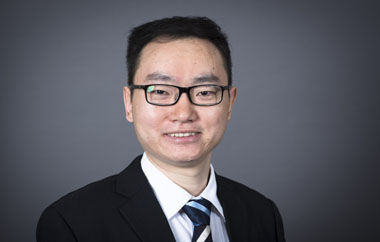PhD in Environmental Engineering
Current position: Assistant Professor, Nanyang Technological University, Singapore
Research focus: development of pressure-retarded osmosis membrane technology for seawater desalination brine disposal and renewable osmotic energy recovery
Since his PhD studies, Qianhong has focused on one of the most promising technologies for harvesting osmotic energy: pressure-retarded osmosis. Osmotic energy is a new type of renewable energy that is sustainably generated by combining two waters with different salinities, and it has huge energy potential globally. The pressure-retarded osmosis membrane technology developed in Qianhong’s research has been recognised as one of the most promising technologies for capturing this renewable energy. The entirety of his research has been carried out at the Singapore Membrane Technology Centre.
Qianhong’s work experience includes, inter alia, serving as technical consultant for a World Bank financed environment project titled “Zhejiang Qiantang River Basin Small Town Environment Project” at the PowerChina Huadong Engineering Corporation along with a research fellowship at Nanyang Technological University.
2017 North American Membrane Society (NAMS) Young Membrane Scientist Award
2017 Membrane Society of Australasia (MSA) Travel Award
CV as submitted for the Green Talents award (2016):
Nanyang Technological University, Singapore
Research focus: development of pressure retarded osmosis membrane technology for seawater desalination brine disposal and renewable osmotic energy recovery
Osmotic energy is a new type of renewable energy that is sustainably generated by combining two waters with different salinities, and it has huge energy potential globally. Successful use of this type of renewable energy can provide significant benefits for the sustainable development of the environment.
The pressure retarded osmosis (PRO) membrane technology developed in She’s research has been recognised as one of the most promising technologies for capturing this renewable energy. The entirety of his research has been carried out at the Singapore Membrane Technology Centre and was supported by Professor Anthony G. Fane, one of the most distinguished scientists in the fields of seawater desalination and membrane research in the world. While doing his research, She published 20 peer-reviewed papers in high impact journals, with over 1100 citations and an h-index of 15 according to Google Scholar.
She graduated from the Nanyang Technological University, Singapore, having completed studies within the field environmental and water resource engineering. His work experience included, among other pursuits, serving as technical consultant for a World Bank financed environment project titled, ‘Zhejiang Qiantang River Basin Small Town Environment Project’ at the PowerChina Huadong Engineering Corporation, along with a research fellowship at Nanyang Technological University. Regarding the future, She says that there is a need to develop new technologies to recover renewable osmotic energy. He explains that, ‘Developing new technologies to explore the emerging renewable osmotic energy is one new perspective I am providing for sustainability research’. He is happy that the theme of the BMBF's Science Year 2016/2017 is ‘Seas and Oceans’ because it is closely related to his research.
The jury was particularly impressed by the significant impact and contributions She made to his field of research, as indicated by the number of his publications and citations. Collaborating with international experts and building up professional networks with Green Talents will help him to reach his professional goal of becoming a highly acclaimed professor and scientist.






